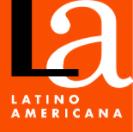The Endurance of Critique
Keywords:
critique, critique of critique, ethnography, genealogy, critical sociology, critical theory, history of anthropology, sociology of critiqueAbstract
Critique in the humanities and the social sciences has recently been under attack and even declared lifeless. Considering the report of its death to be an exaggeration but acknowledging that one should never let a good crisis go to waste, I propose a reflection on the challenges faced by the practice of critical thinking in anthropology based on my own research on AIDS in South Africa, trauma among Palestinians, and policing and punishment in France, while resituating the questions it raises in a broader history of the discipline. More specifically, I discuss two major strands, genealogical critique and critical theory, suggesting how they may be combined, and two opposed views, critical sociology and the sociology of critique, showing that ethnography can surmount their supposed irreconcilability. Affirming that critique, under its multiple forms, is inherent to the anthropological project, I contend that it is more than ever needed in times laden with worrying spectres.
References
Amselle, J.-L. & M”Bokolo (1985). Au coeur de l ”ethnie. Ethnies, tribalisme et état en Afrique. Paris: La Découverte.
Asad, T. (ed.) (1973). Anthropology and the Colonial Encounter. London: Ithaca Press.
Beauvoir, S. de (2005 [1949]). El segundo sexo. Madrid: Cátedra.
Boltanski, L. (2009). De la crítica. Compendio de sociología de la emancipación, Akal, Madrid. 2014.
Bourdieu, P. (1991 [1980]). El sentido práctico. Barcelona: Taurus Ediciones.
Butler, J. (2008 [2002]). “¿Qué es la crítica? Un ensayo sobre la virtud de Foucault”. En Transform: “Producción cultural y prácticas instituyentes. Líneas de ruptura en la crítica institucional ”. Madrid: Editorial Traficantes de Sueños, Colección Mapas, pp. 141-167.
Chakraborty, D. (2016). “Humanities in the Anthropocene: The crisis of an enduring Kantian fable”. New Literary History 47 (2–3): 377–397.
Clifford, J. (1991 [1986]). “Introducción: Verdades parciales”. En: Clifford J & Marcus G (eds) Retóricas de la antropología. Madrid: Ediciones Júcar, pp. 25-60.
Clifford, J. & Marcus, G. (eds.) (1991 [1986]). Retóricas de la antropología. Trad. José Luis Moreno-Ruíz. Madrid: Ediciones Júcar.
Cohen, S. (2005 [2001]). Estados de negación. Ensayo sobre atrocidades y sufrimiento. Buenos Aires: Departamento de Publicaciones. Facultad de Derecho. Universidad de Buenos Aires.
Das, V. (2007). Life and Words: Violence and the Descent into the Ordinary. Berkeley: University of California Press.
Eriksen, TH. (2006). Engaging Anthropology: The Case for a Public Presence. Oxford: Berg.
Fassin, D. (2007). When Bodies Remember: Experiences and Politics of AIDS in South Africa. Berkeley: University of California Press
Fassin, D. (2015). “Maintaining order: The moral justifications for police practices”. En: Fassin D, et al. (eds) At the Heart of the State: The Moral World of Institutions. Londres: Pluto Press, pp. 93–116.
Fassin, D. (2016 [2014]). La fuerza del orden. Una etnografía del accionar policial en las periferias urbanas. Trad. Andrea Sosa Varrotti. Buenos Aires: Siglo XXI.
Fassin, D. (2016b [2012]). “Una subjetividad sin sujeto: la metamorfosis de la figura del testigo”. En: Fassin, D (ed.) La razón humanitaria. Una historia moral del tiempo presente. Buenos Aires: Prometeo.
Fassin, D. (2017). “When ethnography goes public”. En: Fassin, D. (ed.) If Truth Be Told: The Politics of Public Ethnography. Durham: Duke University Press.
Fassin, D. and Rechtman, R. (2009 [2007]). The Empire of Trauma: An Inquiry into the Condition of Victimhood. Princeton: Princeton University Press.
Felski, R. (2016). “Introduction” to the special issue “Recomposing the Humanities – with Bruno Latour”. New Literary History 47(2–3): 215–229.
Fleck, L. (1979 [1935]). Genesis and Development of a Scientific Fact. Chicago: University of Chicago Press.
Foucault, M. (1993 [1984]). “¿Qué es la Ilustración?” Trad. Antonio Campillo. Daimon. Revista de filosofía. 7: 5-18.
Foucault, M. (2002 [1975]) Vigilar y castigar: nacimiento de la prisión. Trad. Aurelio Garzón del Camino. Buenos Aires: Siglo XXI Editores.
Geertz, C. (1984). “Anti antirelativism”. American Anthropologist 86(2): 263–278.Geuss, R. (1981). The Idea of a Critical Theory: Habermas and the Frankfurt School. Cambridge: Cambridge University Press.
Geuss, R. (2002). “Genealogy as critique”. European Journal of Philosophy10(2): 209–215.Hacking, I. (1999). The Social Construction of What? Cambridge, MA: Harvard University Press.
Harman, G. (2016). “Demodernizing the humanities with Latour”. New Literary History 47(2–3): 249–274.
Hofstadter, R. (1962). Anti-Intellectualism in American Life. New York: Vintage Books.
Honneth, A. (2009). Patologías de la razón. Historia y actualidad de la teoría crítica. Trad. Griselda Mársico. Buenos Aires: Katz.
Hymes, D. (1969). “The use of anthropology: Critical, political, personal”. En: Hymes D (ed.) Reinventing Anthropology. Nueva York: Vintage Books, pp. 3–79.
Kant, I. (2009 [1784])). ¿Qué es la Ilustración? Trad. Roberto Aramayo. Madrid: Alianza.
King, G. (2014.) “Restructuring the social sciences: Reflections from Harvard”s Institute for Quantitative Social Science”. Political Science and Politics47(1): 165–172.
Lahire, B. (2016). Pour la sociologie. Et pour en finir avec une prétendue “culture de l ”excuse”. París: La Découverte.
Latour, B. (2004). “¿Por qué se ha quedado la crítica sin energía? De los asuntos de hecho a las cuestiones de preocupación”. Trad. Antonio Arellano Hernández. Convergencia. Revista de Ciencias Sociales 11(35): 17-49
Lévi-Strauss, C. (1987 [1958]). Antropología estructural. Trad. Eliseo Verón. Buenos Aires: Paidós.
Lukes, S. (2011). “In defence of 'false consciousness'“. University of Chicago Forum. Disponible en: http://chicagounbound.uchicago.edu/cgi/viewcontent.cgi?article=1473&contex=uclf (accedido el 26 de diciembre de 2016).
Marcus, G. (ed.) (1999). Paranoia within Reason: A Casebook on Conspiracy as Explanation. Chicago: University of Chicago Press
Marcus, G. (1991 [1986]). “Epílogo: La escritura etnográfica y la carrera antropológica”. En: Clifford, J. & Marcus, G. (eds.) Retóricas de la antropología. Madrid: Ediciones Júcar, pp. 357-364.
Oreskes, N. & Conway, E. (2010). Merchants of Doubt: How a Handful of Scientists Obscured the Truth on Issues from Tobacco Smoke to Global Warming. New York: Bloomsbury Press.
Owen, D. (2002). “Criticism and captivity: On genealogy and critical theory”. European Journal of Philosophy 10(2): 216–230.
Rancière, J. (2009 [2008]). The Emancipated Spectator. Londres: Verso.
Said, E. (2002 [1978]). Orientalismo. Trad. María Luisa Fuentes. Barcelona: Random House Mondadori.
Scheper-Hughes, N. (1997 [1992]). La muerte sin llanto. Violencia y vida cotidiana en Brasil. Barcelona: Editorial Ariel.
Scott, J. (1985). Weapons of the Weak: Everyday Forms of Peasant Resistance. New Haven: Yale University Press.
Steinmetz, G. (2005). “Positivism and its others in the social sciences”. En: Steinmetz G (ed.) The Politics of Method in the Human Sciences. Durham: Duke University Press, pp. 1–56.
Taylor, C. (1994). “The politics of recognition”. En: Taylor, C., et al. (eds.) Multiculturalism. Princeton: Princeton University Press, pp. 25–74.
Walzer, M. (2002 [1989]). The Company of Critics: Social Criticism and Political Commitment in the Twentieth Century. New York: Basic Books.
West, H. & Sanders, T. (eds.) (2003). Transparency and Conspiracy: Ethnographies of Suspicion in the New World Order. Durham: Duke University Press.
Williams, R. (2000 [1976]). Palabras clave. Un vocabulario de la cultura y la sociedad. Trad. Horacio Pons. Buenos Aires: Ediciones Nueva Visión.Didier Fassin es profesor de ciencias sociales en el Institute for Advanced Study y director de estudios de la École des Hautes Études en Sciences Sociales. Ha realizado investigaciones en Senegal, Congo, Sudáfrica, Ecuador, y Francia. Recientemente brindó las Tanner Lectures en Berkeley tituladas ““The Will to Punish”“ y las Adorno Lectures en Frankfurt tituladas ““Life: A Critical Anthropology”“. Entre sus publicaciones se encuentran Humani-tarian Reason. A Moral History of the Present (University of California Press, 2011), Enforcing Order. An Ethnography of Urban Policing (Polity, 2013), Four Lectures on Ethics. Anthropological Perspectives (con M. Lambek, V. Das & W. Keane, Hau Books, 2015), Prison Worlds. An Ethnography of the Carceral Con-dition (Polity, 2016), y Punir. Une passion contemporaine (Seuil, 2017).
























